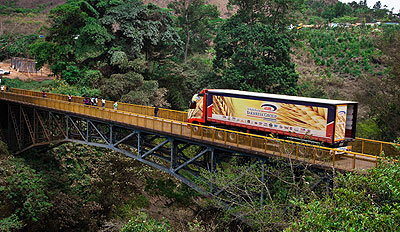East African Community partner states have made some progress towards ensuring free movement of goods, capital and services in the region, a new survey has revealed.


East African Community partner states have made some progress towards ensuring free movement of goods, capital and services in the region, a new survey has revealed.
The scorecard, launched on Wednesday in Kigali, was designed to monitor the implementation of the EAC Common Market Protocol that was signed in 2010.
The report, that analysed movement of goods, services and capital, shows that all the five partner states still have restrictions on free movement.
On free movement of capital, Kenya ranked highest in the region with 17 out of 20 unrestricted operations. Rwanda and Uganda came second with 15, while both Tanzania and Burundi scored 4 out of 20.
The findings also revealed that all the partner states still have restrictions on inward investment from other EAC countries.
It cites the Initial Public Offerings (IPOs) of Bralirwa, Bank of Kigali and Umeme in Uganda, in which Burundian and Tanzanian investors couldn’t freely participate due to rigorous capital controls.
On free movement of services, the scorecard shows that out of 500 key sectoral laws and regulations of the EAC partner state, at least 63 restricted movement of professionals in different fields.
The scorecard recommends amendment of national laws to align them with EAC protocols.
Across the five countries, 75 per cent restrictions were identified in laws, 15 per cent were administrative measures, while 10 were regulatory rules.
While launching the report on Wednesday, countries were urged to create an enabling environment for movement of goods, services and capital in order to spur the integration agenda.
"Domestic laws have to be reformed to allow service providers move freely,” Carolyn Turk, the World Bank country representative, said.
Though some trade barriers have been removed, the findings show that certificates of origin of goods are still a challenge to traders.
Alfred Ombudo, the lead author of the report, said all the five partner states are yet to fully eliminate non-tariff barriers (NTBs) that affect cross border trade.
Out of 51 reported NTBs, 35 per cent are in Tanzania, 31 pe r cent in Kenya and 18 per cent in Uganda. Rwanda has 10 per cent while Burundi has 6 per cent.The most affected are manufactured goods, foodstuffs like rice, tea, dairy products and alcoholic beverages.
Jacqueline Muhongayire, Rwanda’s EAC affairs minister ,said she was optimistic that the newly launched scorecard will help fast- track regional integration process.
Trademark East Africa programme manager John Bosco Kalisa said the scorecard was a significant tool in the integration process.
Peter Kiguta, the Director General of customs and trade, who represented the EAC Secretary General at the function, said the scorecard, published on the directive of heads of state, will help accelerate compliance ahead of the 2015 deadline for full implementation of the Common Market Protocol.
However, he acknowledged that the plan to have all national laws aligned to facilitate free movement of capital, services and goods by 2015 was too ambitious.
"A lot remains to be done and the time remaining is short to meet the deadline,” he said.


